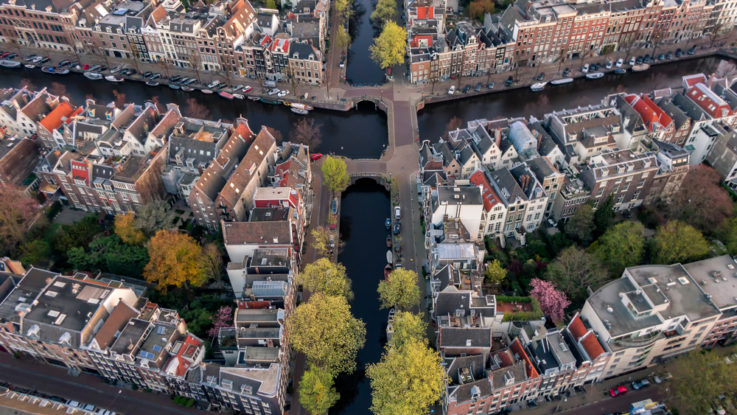
Researchers from MIT’s Computer Science and Artificial Intelligence Laboratory (CSAIL) and the Senseable City Laboratory – along with the Amsterdam Institute for Advanced Metropolitan Solutions (AMS Institute) – have released full-scale autonomous, robotic boats, called the ‘Roboat,’ to deploy in the city of Amsterdam. The City of Amsterdam, Amsterdam’s water company Waternet, and the City of Boston are supportive of the 5-year program. Plans are underway to test Roboat for use in transportation and trash removal.
“The historical center of Amsterdam is the perfect place to start, with its capillary network of canals suffering from contemporary challenges, such as mobility and logistics,” said Stephan van Dijk, director of innovation at AMS Institute.
The Roboat is easy to manufacture, highly maneuverable, and capable of accurate trajectory tracking in both indoor and outdoor environments.
“By applying Roboat in a city like Amsterdam with busy canals we have a great opportunity to improve the control system for autonomous navigation in urban environments. This is something that has not been shown before in other projects for autonomous vessels,” stated Carlo Ratti, Professor at MIT Senseable City Lab. & AMS PI.
Roboat uses Laser Image Detection and Ranging (LiDAR) data, GPS, and a suite of cameras to build a 360-degree picture of its surroundings. The boat is capable of autonomously deciding on a safe route from A to B – while continuously scanning the environment to avoid collisions with objects, such as bridges, pillars, and other boats.
“We now have higher precision and robustness in the perception, navigation, and control systems, including new functions, such as close-proximity approach mode for latching capabilities, and improved dynamic positioning, so the boat can navigate real-world waters,” says Daniela Rus, director of CSAIL. “Roboat’s control system is adaptive to the number of people in the boat.”
Roboat is fully electric with a battery enabling up to 10 hours of operation, and it can be recharged wirelessly. The Roboat is capable of autonomously performing its tasks 24/7, but an onshore operator will monitor it remotely from a control center. One operator will be able to monitor over 50 Roboat units.
“In ten years’ time, when Roboat has been developed into a commercial product that navigates the local waters, Amsterdam’s canals could again be used intensively for goods transport. Just like three centuries ago,” said Udo Kock, Former Deputy Mayor of Amsterdam.